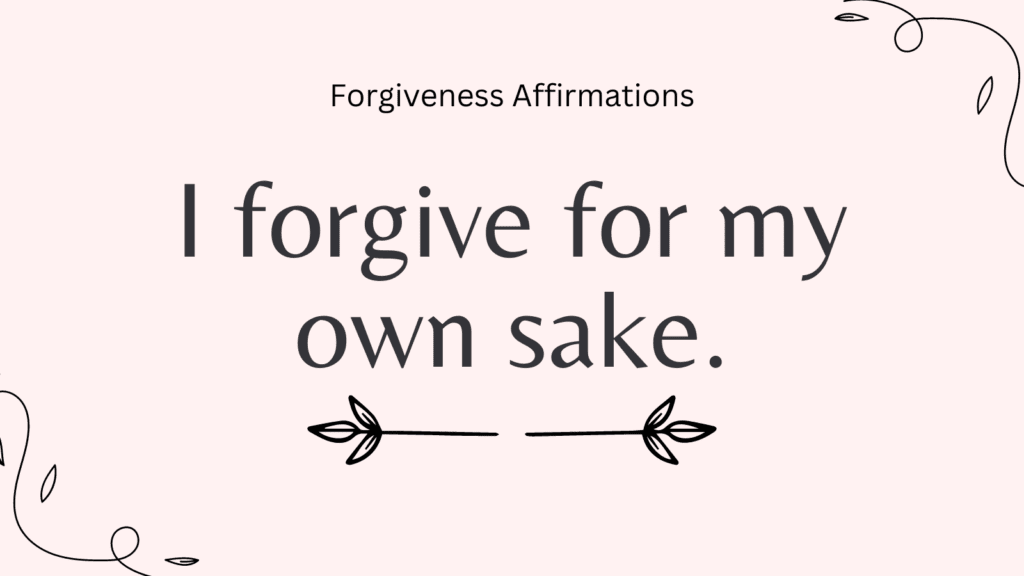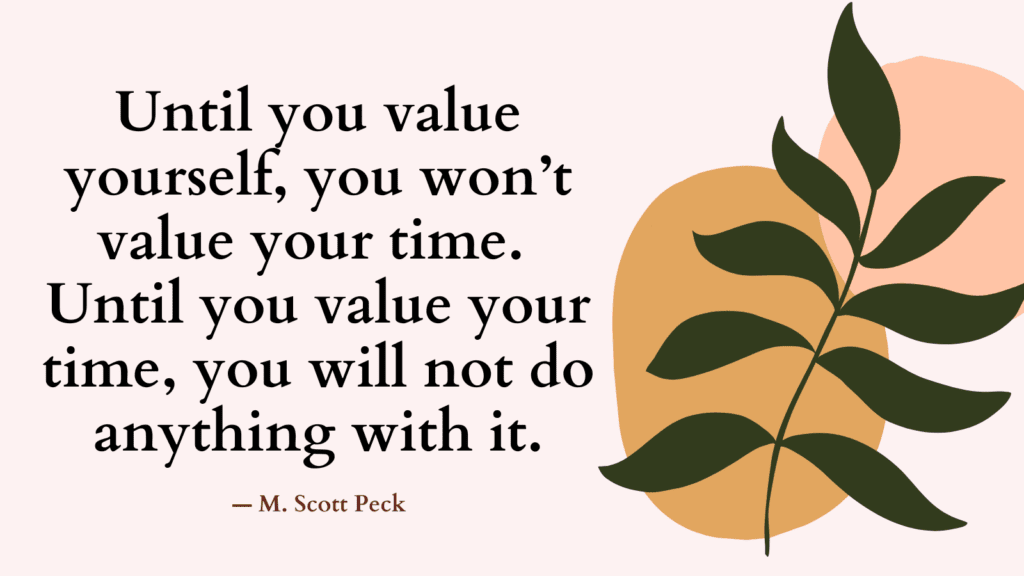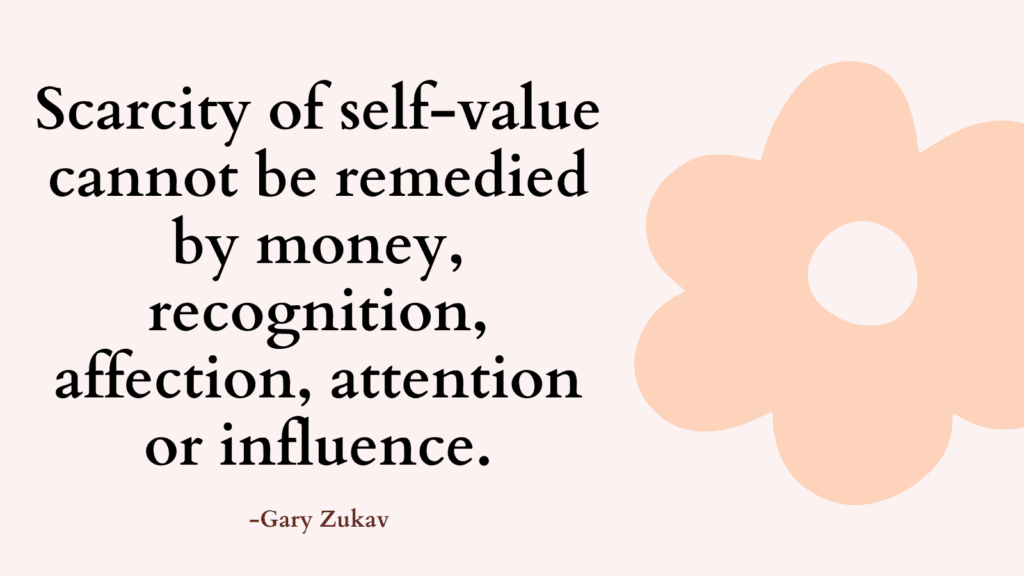This post contains some of the best forgiveness affirmations.
Forgiveness Affirmations
1. All good things are possible for me.
2. I accept and experience life.
3. I accept things as they are.
4. I am able to make small changes.
5. I am capable of healing in my relationships.
6. I am here to be happy.
7. I am in charge of my own response.
8. I am open to life and all it holds.
9. I am strong enough to grieve.
10. I become aware of what negativity is costing me.
11. I can create inner change.
12. I can create new beliefs.
13. I choose my own road.
14. I choose to let go and move on.
15. I choose to see this in a different light.
Related: Forgiving Someone Who Isn’t Sorry: 9-Step Guide To Free Yourself From The Past
16. I forgive for my own sake.
17. I forgive to free myself.
18. I have the courage to heal.
19. I let go of bitterness.
20. I own my feelings and am willing to experience them.
21. I recognize that blame doesn’t work.
22. I recognize that judgment gets me nowhere.
23. I recognize the futility of trying to control others.
24. I see the full picture of recovery.
25. I take this small step toward growth.
26. I understand the role I play in co-creating my reality.
27. I will choose life.
28. I will show up for my life today.
29. It is okay to let anger go.
30. My life is for me to enjoy.
Related: Best 21 Forgiveness Journal Prompts (+FREE Worksheets PDF)
Self Forgiveness Affirmations
31. I accept my slips and falls.
32. I accept that there are some people, things and situations that I can do nothing about.
33. I affirm myself in positive ways.
34. I am an uncritical observer of my own self.
35. I am capable of changing.
36. I am free to be who I am.
37. I am never alone.
38. I am willing to learn.
39. I am willing to live with all of who I am.
40. I can deal with my needs in healthy ways.
41. I can live through feelings of shame and let them go.
42. I can reach out.
43. I do my part to heal.
44. I forgive myself for participating in this dynamic.
45. I let go of my need for perfection.
46. I look within myself for myself.
47. I practice new ways of being.
48. I treat myself with gentleness and respect.
49. I trust my inner voice.
50. It is all right to love myself.
Related: Best 12 Forgiveness Books
The Power of Forgiveness Affirmations
1. Shifting Mindset: Affirmations challenge negative thoughts and beliefs, replacing them with positive and empowering perspectives. By consistently repeating forgiveness affirmations, we can gradually shift our mindset from one of blame, anger, or resentment to one of understanding, compassion, and forgiveness.
2. Subconscious Reprogramming: Affirmations work on a subconscious level, gradually replacing deeply ingrained beliefs and patterns. They help us rewire our thoughts and emotional responses, enabling us to let go of past hurts and embrace forgiveness.
3. Emotional Healing: Forgiveness affirmations can bring emotional healing by providing a safe and empowering space to acknowledge and release our pain. They help us process our emotions, offering a sense of relief, and paving the way for personal growth.
How to Use Forgiveness Affirmations?
1. Identify Your Pain
Before incorporating forgiveness affirmations into your routine, take some time to identify the specific pain or resentment you want to address.
This could be related to a specific person, event, or even self-directed anger.
Acknowledging your pain is an essential first step towards healing.
2. Craft Personalized Affirmations
Create affirmations that resonate with your experience and align with your personal values. For example:
– “I choose to forgive and release all the pain caused by [person/event].”
– “I deserve to let go of my anger and embrace forgiveness.”
– “I am open to healing and transforming my pain through forgiveness.”
3. Consistency is Key
Consistency plays a crucial role in the effectiveness of affirmations.
Incorporate forgiveness affirmations into your daily routine, such as saying them out loud in front of a mirror, writing them down in a journal, or recording them as voice memos.
Repeat them multiple times a day, ensuring that you engage with the words and the emotions they evoke.
4. Visualize the Healing Process
As you repeat your affirmations, visualize yourself letting go of the pain, resentment, or anger associated with the past events or individuals.
Imagine yourself stepping into a future where forgiveness has brought you peace and emotional freedom.
Visualization enhances the impact of affirmations by engaging both your mind and emotions.
5. Combine Affirmations with Other Practices
Enhance the effectiveness of forgiveness affirmations by combining them with other healing practices.
Meditation, mindfulness, deep breathing exercises, and journaling can complement the affirmation practice and provide additional support in your forgiveness journey.
6. Be Patient and Kind to Yourself
Healing and forgiveness are processes that take time.
Be patient with yourself and understand that progress may not be linear.
If negative emotions resurface or setbacks occur, treat yourself with kindness and compassion.
Affirmations are tools to support you, but they can’t replace the natural ebb and flow of emotions.
Allow yourself to feel and process your emotions fully.

Can You Forgive And Still Be Hurt?
Forgiveness is often seen as a healing process that allows us to let go of anger, resentment, and pain.
However, it is not always synonymous with forgetting or completely moving on from the hurt caused.
In fact, it is possible to forgive someone and still feel the effects of the hurt they inflicted.
When we forgive, we choose to release the desire for revenge and offer compassion toward the person who harmed us. This act of forgiveness can bring peace and emotional freedom, but it doesn’t erase the memory of the hurtful actions.
To better understand this concept, imagine a close friend betraying your trust. Initially, you may feel a deep sense of hurt, disappointment, and even anger. Eventually, you may decide to forgive them and give your friendship another chance.
However, even after forgiving, you might still experience residual emotions such as caution, apprehension, or even doubt. Although forgiveness allows for healing, it does not erase the past or the impact it had on us.
It is natural to feel guarded or more cautious in similar situations in the future, despite having practiced forgiveness.
It is essential to acknowledge and honor our emotions even after forgiving someone.
By allowing ourselves to feel the pain and process it, we give ourselves the opportunity to heal fully.
Suppressing or denying these emotions can lead to unresolved issues that may resurface later, hindering our personal growth and well-being.
Additionally, setting healthy boundaries is crucial in maintaining our emotional safety, even within forgiven relationships.
Ultimately, forgiving and still feeling hurt is a testament to our capacity for empathy and compassion. It shows that we recognize our own worth and prioritize our emotional needs.
While forgiveness can bring immense healing, it is equally important to prioritize our own well-being and ensure that we take the necessary steps to protect ourselves from further harm.
Conclusion
It’s important to remember that forgiveness is a process, and it can take time. It’s also okay if you are not ready to forgive someone. In some cases, forgiveness may not be possible or appropriate.
Working with a therapist can help you navigate these challenging emotions and explore ways to move forward.



